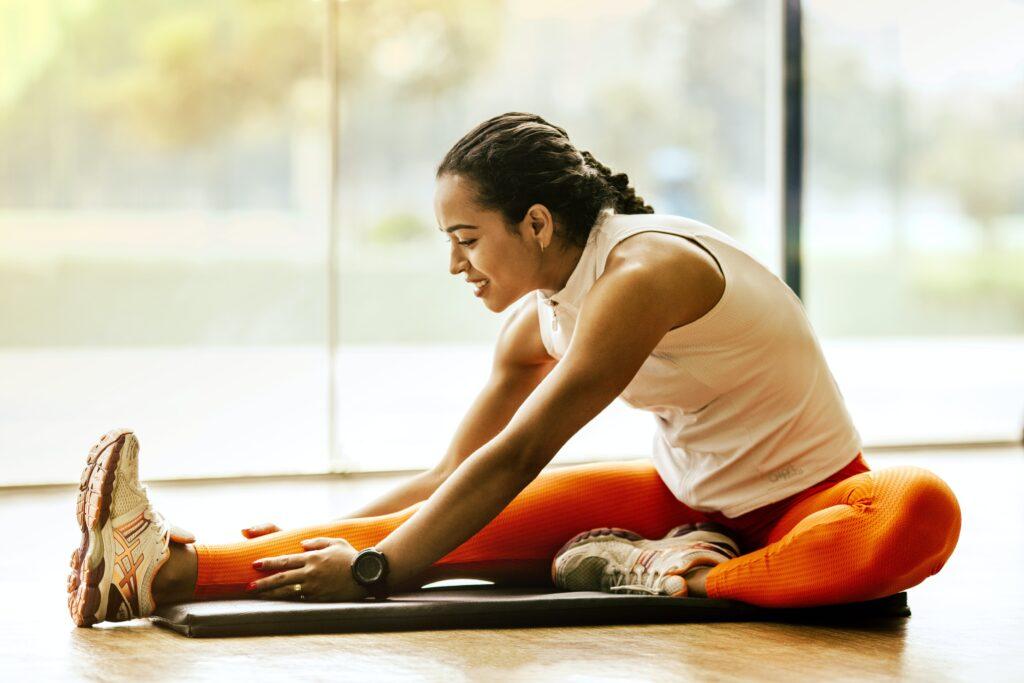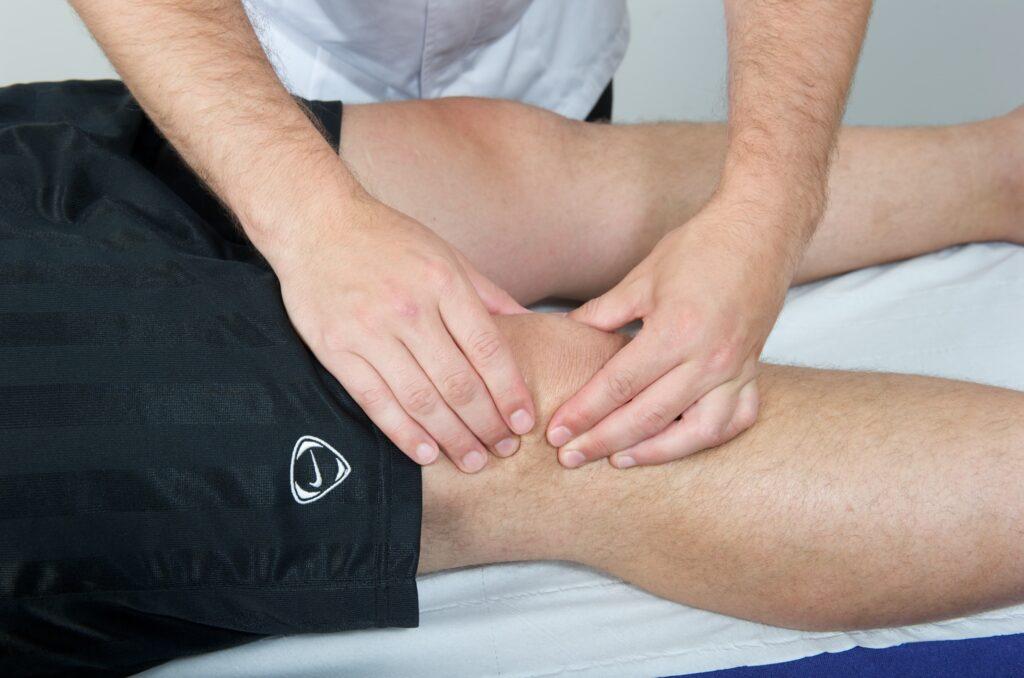The knee is an extremely complex joint in the body and many people can struggle with knee pain for a variety of reasons. Knee pain can not only limit your functionality and range-of motion but may also lead to a reduced quality of life if you are no longer able to do the things you love, or to take part in day-to-day activities. However, using non-invasive remedies may help stop you from experiencing the harmful side effects of pain medications. Here are five non-invasive remedies that you can try to help reduce your knee pain:
1. Weight Loss & Diet
One possible cause to investigate is your current weight. Often, people who are overweight will have higher levels of knee pain due to increased stress on the joint. The force across the knee is amplified with more weight – it is equal to one and a half times your body weight which means that if you weigh 90kg, you put approx 140kg of pressure on your knees when walking across level ground. Walking at an incline or squatting down to pick up an object can increase the force up to five times your body weight, therefore increasing the pressure placed on your knee which can lead to pain. Several studies have shown that a reduction in weight can lead to a reduction in knee pain. If weight could be a contributing factor to your pain, you may want to discuss your diet and possible weight loss strategies with your doctor.
2. Tai Chi

Tai Chi is a Chinese form of exercise that improves balance and flexibility through the use of both the mind and the body. Studies have shown that the practice of Tai Chi aids in reducing knee pain through its slow, flowing movements. The soft movements in this healing art, gently release knee stiffness thus reducing pain.
3. Stretching
Our bodies are an intricate balance of muscle, bone, and tissue. Stretching muscles in your legs can help to reduce the burden on your knees. The hips, glutes, hamstrings, calves, and quads work together to support the proper functioning of your knee. When one area is compromised by weakness or tightness, your knee can suffer.
The muscles and tendons from the hips to the feet work in conjunction with one another to support your joints as you move. Reducing tightness through stretching the hips can reduce the level of pain in the knee because the majority of muscles that affect the knee begin in the hip area. Keeping all of your leg muscles flexible, better supports and protects your knees by allowing the joint to move more freely and fluidly.

4. Exercise
Daily exercise is imperative for the reduction of short or long-term knee pain as it helps to restore strength and mobility. While you may not feel like exercising, it is important to keep the joint moving. Keeping the leg and knee stationary to avoid pain will ultimately cause the joint to stiffen which will only make the problem worse. Inactivity causes the cartilage between joints to shrink and stiffen, often leading to increased pain. Exercise helps the joint by strengthening the muscles and tissue around the area as well as increasing flexibility. Stronger muscles and tissues are better able to support your knee resulting in less pain. Researchers have found that exercise helps to decrease pain, improve physical function, and increase the overall quality of life.
5. Osteopathy
Depending upon the cause of the knee pain, Osteopathy can often help to resolve the pain relatively quickly.
If the pain is due to the altered relative positioning of joints and/or muscles (known as a somatic dysfunction), then the Osteopath here at Baks is usually able to resolve these non-complicated causes within a few treatment sessions.

If the cause of the pain is due to moderate to major tearing of muscles and/or joint/ligament tissues then it would be advisable to seek medical attention instead, although Osteopathy will still be a useful part of your rehabilitation, after the acute phase of injury has passed.
If you have knee pain – need relief, then don’t suffer, book in, let us assess you and we’ll see if we can help.
If you enjoyed reading our Knee Pain blog, then be sure to look out for our next one. Also, if you know someone who may find it interesting, then please share this page.